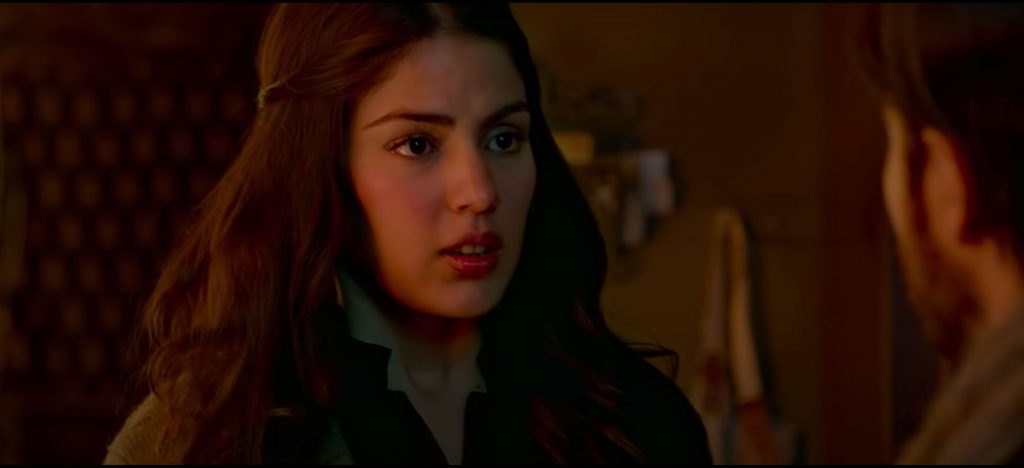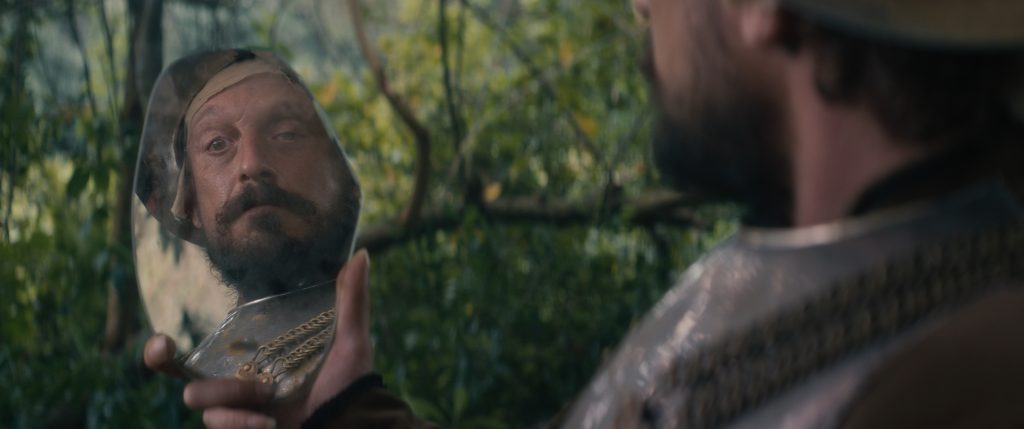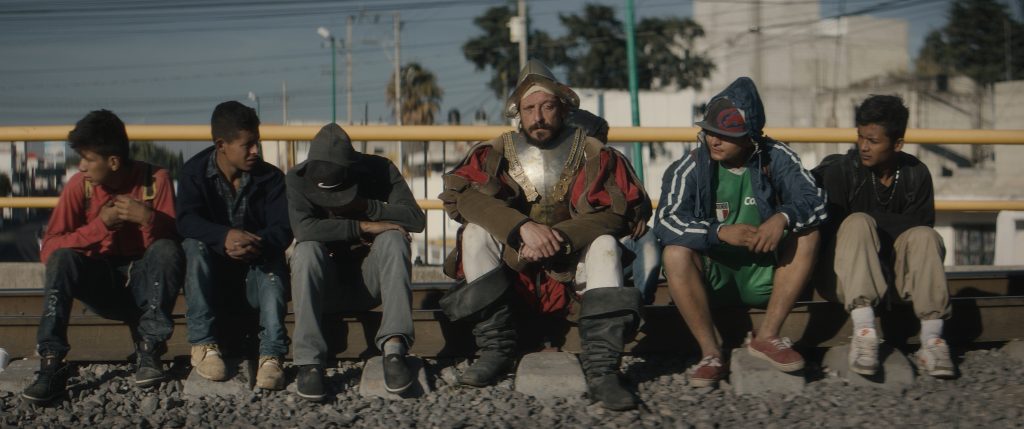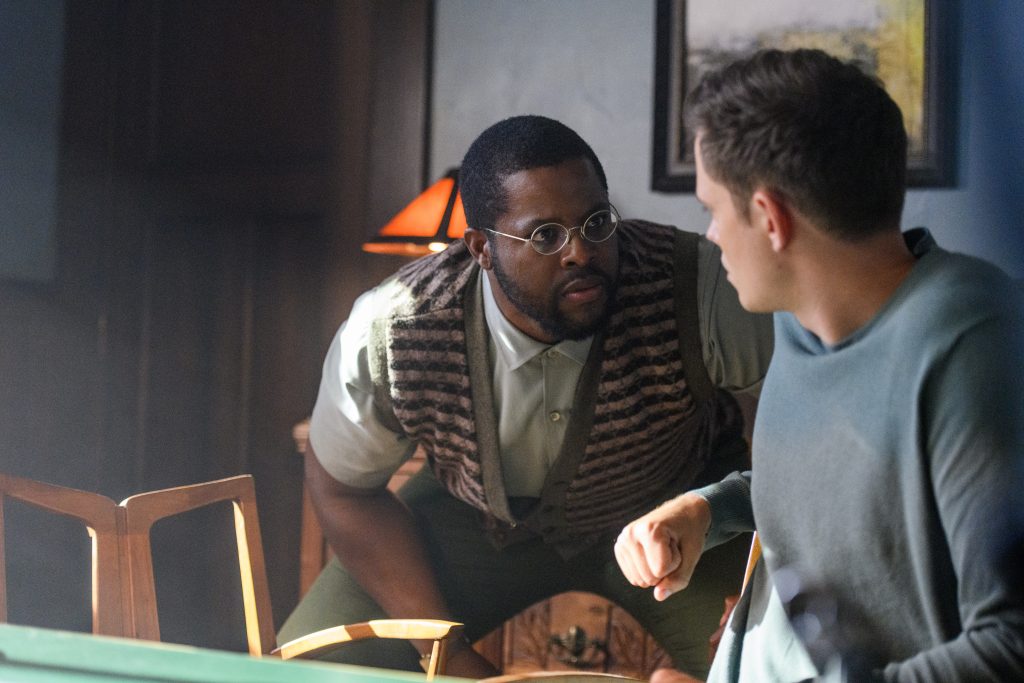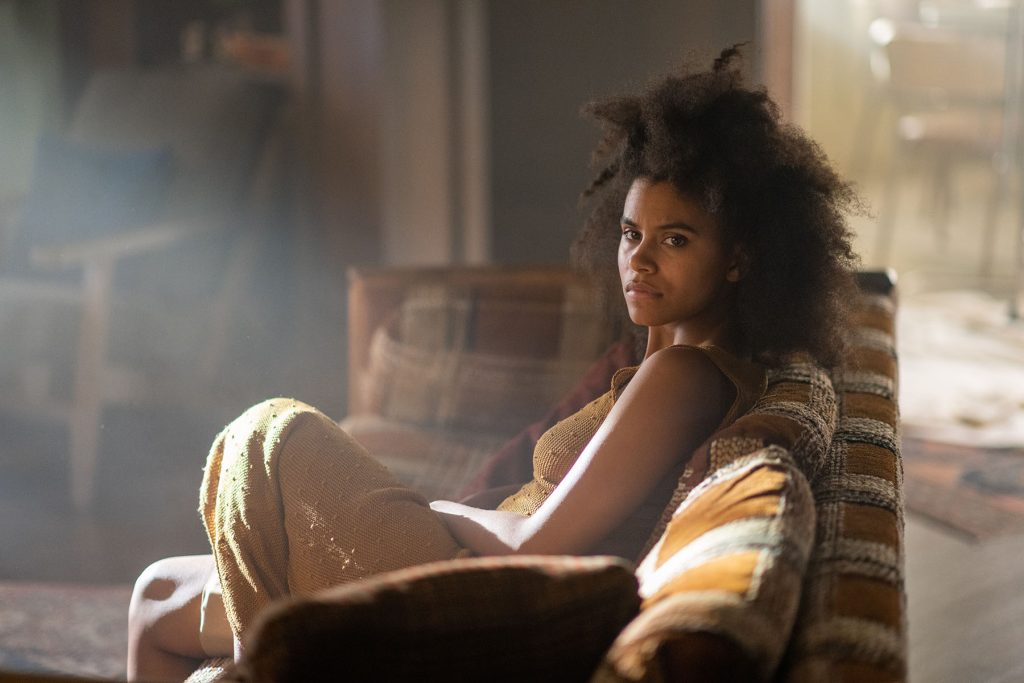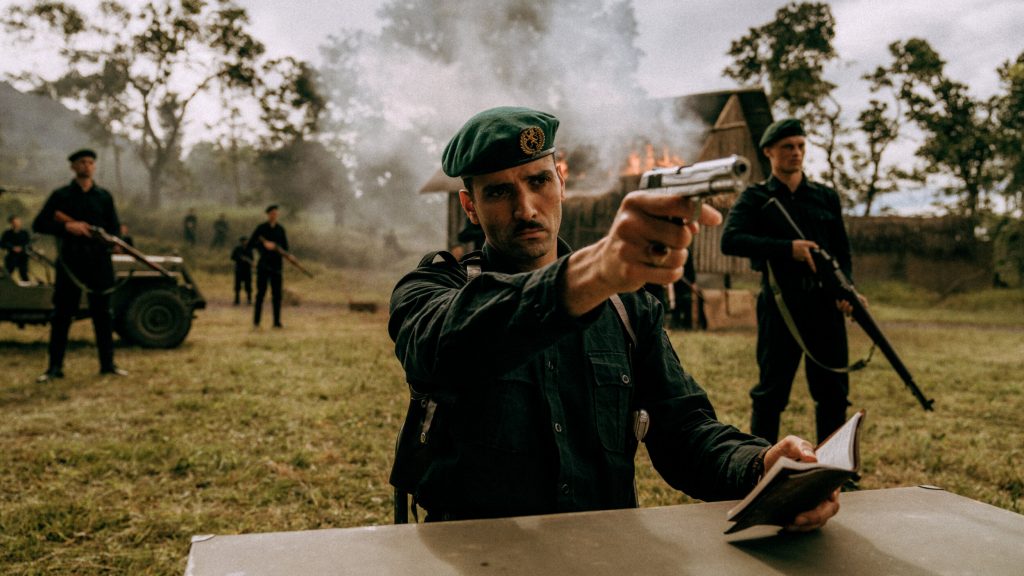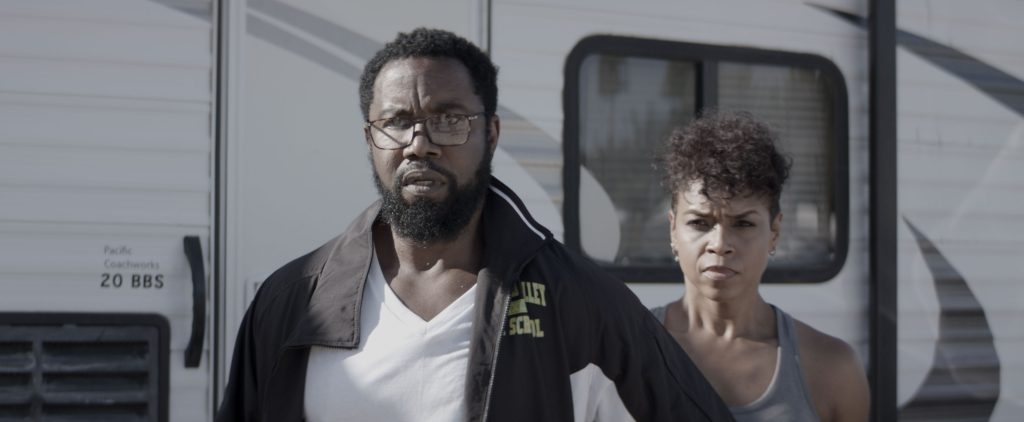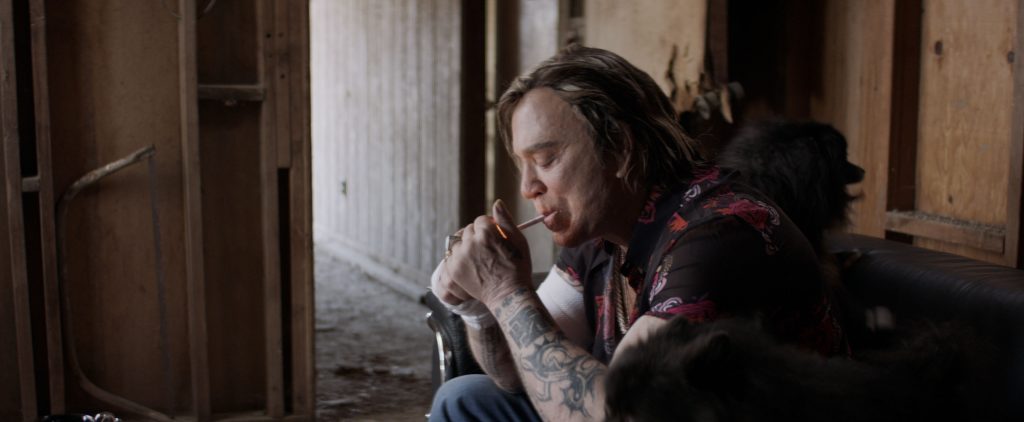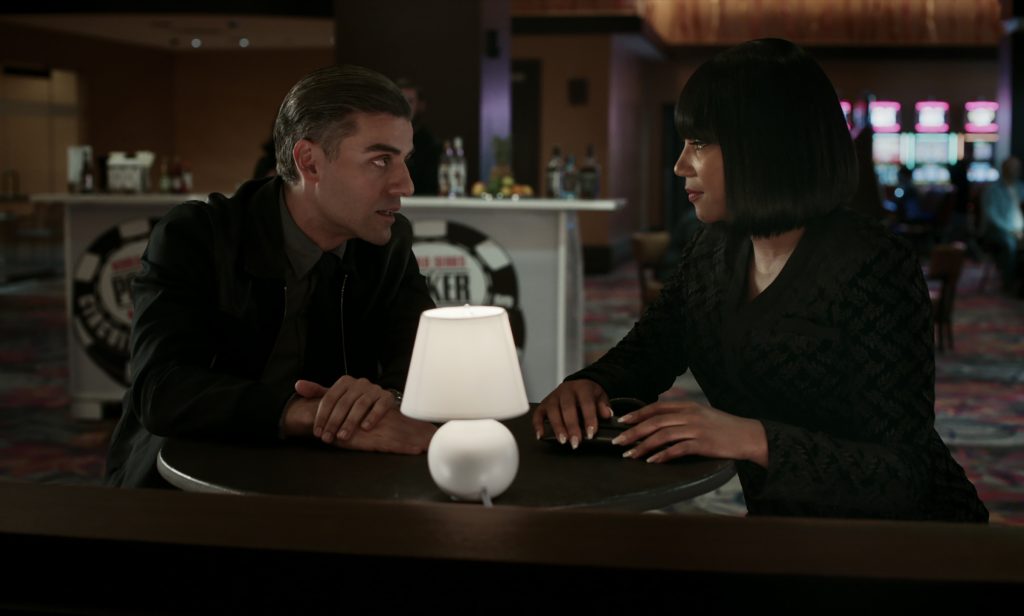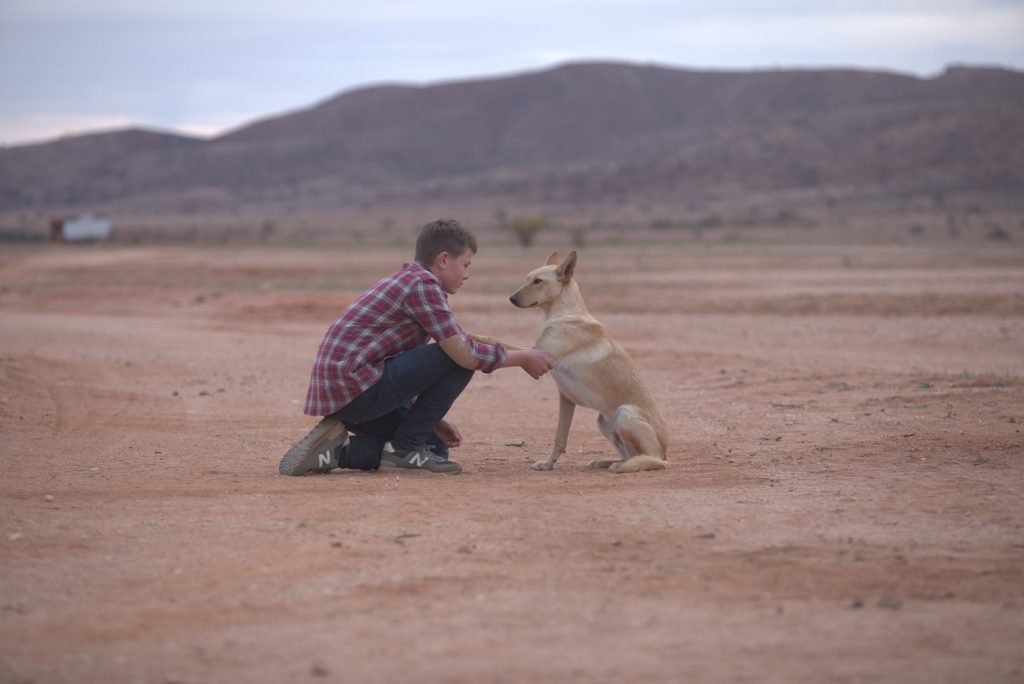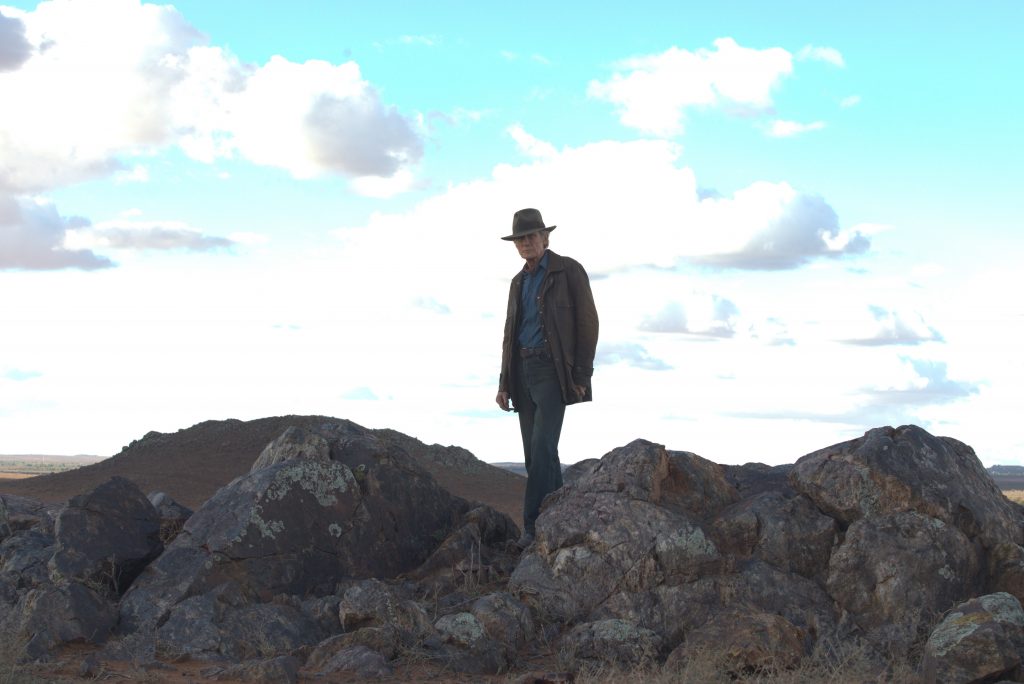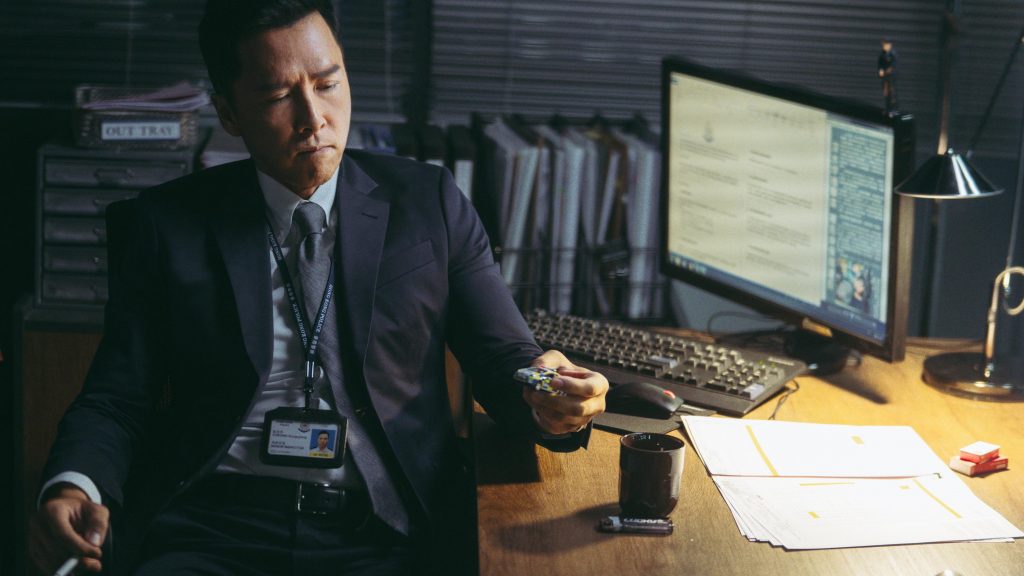September 7, 2021
by Carla Hay

Directed by Gabriel Riva Palacio Alatriste and Rodolfo Riva Palacio Alatriste
Spanish with subtitles
Culture Representation: Taking place in Mexico and Congo, the animated film “Un Rescate de Huevitos” features a group of talking animals, as well as human Russians and Mexicans.
Culture Clash: A greedy villainess, who collects valuable eggs for a Russian baron, steals two young “golden eggs,” whose rooster father and hen mother go on the hunt to rescue their children.
Culture Audience: “Un Rescate de Huevitos” will appeal primarily to people who are interested in watching family-friendly animated adventure stories.
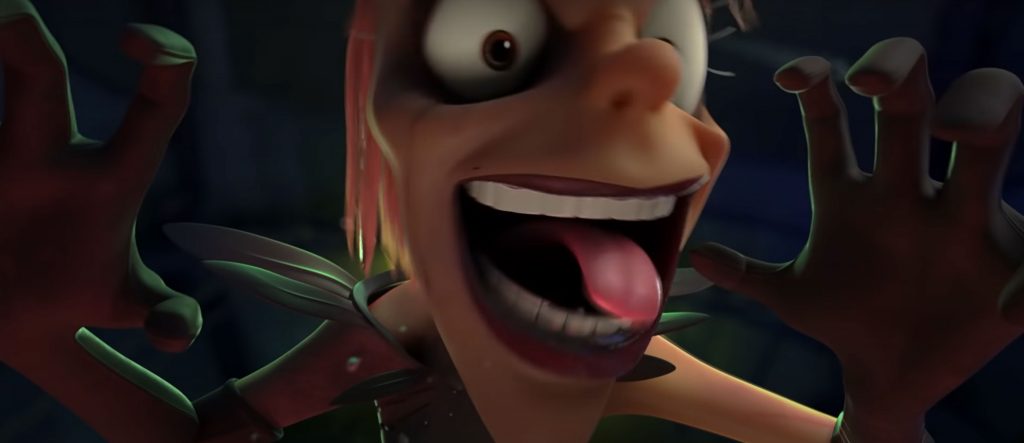
“Un Rescate de Huevitos” (which means “An Egg Rescue” in English) is a lightweight, fun-filled ride for people who enjoy animation with a predictable story arc that’s entertaining, thanks to the variety of characters and amusing situations. The movie might seem to be a little overstuffed with characters for very young viewers or for people with short attention spans. However, the adventurous plot of the movie is very easy to follow, which makes “Un Rescate de Huevitos” a crowd-pleasing film for many generations.
Directed by brothers Gabriel Riva Palacio Alatriste and Rodolfo Riva Palacio Alatriste, “Un Rescate de Huevitos” is the fourth in Huevocartoon Producciones’ “Huevos” animated series of films that follows the life of a rooster chicken named Toto, beginning from when he was an egg in the first movie to now being a husband and father in this fourth film. The Alatriste brothers (who co-founded Huevocartoon Producciones) co-wrote the “Un Rescate de Huevitos” screenplay.
In “Un Rescate de Huevitos,” Toto (voiced by Bruno Bichir) and his wife Di (voiced by Maite Perroni) are living happily on Granjas el Pollon (El Pollon Farms) somewhere in Mexico. These two lovebirds have welcomed two golden eggs into their family: a boy named Max (voiced by Oliver Flores) and a girl named Uly (voiced by Dione Riva Palacio Santacruz).
These new parents (especially Toto) are very protective of their eggs and get some babysitting help from their egg friend Bibi (voiced by Angélica Vale), who is dating Toto’s egg best friend Willy (played by Carlos Espejel), a former military sergeant. Even though the eggs haven’t become chickens yet, they have minds of their own and want to be independent. Max is very resentful of his father Toto being overprotective, and they have disagreements about it.
The farm’s human owner La Abuelita (voiced by María Alicia Delgado) is so entranced with the eggs’ golden appearance that she enters the eggs into a contest for ranchers and farmers can show off their young animals. The eggs win the grand prize. La Abuelita is proud and delighted, but her joy won’t last long because the eggs are about to be stolen.
At this contest is a Russian egg collector named Duquesa (voiced by Mayra Rojas), a ruthless villain who wants eggs as treasures and as delicacies. She’s looking for chicken eggs to complete her collection. Duquesa (which means “duchess” in English; her real name is Guadalupe) works for Barón Roncovich (voiced by Humberto Vélez), who hosts a gala event in Africa for society’s elite from all over the world. At this event, rare eggs are served as delicacies.
Duquesa immediately wants the golden eggs for Barón Roncovich’s upcoming gala, so she offers to buy Max and Uly for $200, but La Abuelita declines the offer. But that doesn’t stop Duquesa, who orders two hired thugs who are bothers—Panzovich (voiced by Héctor Lee) and Gordimitri (voiced by Juan Frese)—to follow La Abuelita and her family back to the farm. The thug brothers send animal moles with mind-control helmets to the farm to steal Max and Uly.
Uly and Max’s loved ones are frantic when they find that out the two eggs are missing. They form a rescue group consisting of Toto, Di, Willy, Bibi, a goofy Cascarón egg named Confi (voiced by Gabriel Riva Palacio Alatriste) and a mute bacon strip called Bacon. The thugs betray the moles by leaving the helmets on, and the moles can’t take them off without help.
Willy and Bibi find track down one of the moles, whose name is Toporocho (voiced by Claudio Herrera), and they free him from the helmet. In gratitude, Toporocho tells the rescue group that the eggs are on a plane headed to the African country of Congo. The rescuers hitch a ride on the plane, but a series of events get them thrown off the plane and into the jungles of Congo, where they have no idea where they are.
Meanwhile, Max and Uly have been placed in a collector’s jar. They are being held captive with other eggs who are in the same predicament: Torti, a slow-speaking turtle egg with powerful jaws. snake egg Serp (voiced by Gabriel Riva Palacio Alatriste); crocodile egg Coco (voiced by Rodolfo Riva Palacio Alatriste); lizard egg Lagatijo (voiced by Gabriel Riva Palacio Alatriste); ostrich egg Manotas (voiced by Gabriel Riva Palacio Alatriste); iguana egg Iguano (also voiced by Rodolfo Riva Palacio Alatriste); ostrich egg Huevo de Halcón (voiced by Armando González); eagle egg El Huevo de Águila Real (voiced by Mauricio Barrientos); famine quail egg Huevo de Codorniz (voiced by Ximena de Anda); and peacock egg Pavi (voiced by Mónica Santacruz).
Other characters that make appearances in the movie include chicken-eating opossums (and partners in crime) Tlacua (voiced by Fernando Meza) and Cuache (voiced by Rodolfo Riva Palacio Alatriste). There are also two monkeys named El Chango Bananero (voiced by Freddy Ortega) and El Chango Petacón (voiced by German Ortega that are talent scouts for a “Congo’s Got Talent” show, with a lion named Rey León (voiced by Jesús Ochoa), also known as Leonidas I.
One of the best things about “Un Rescate de Huevitos” is that it keeps the adventurous spirit consistent throughout the entire movie, whose pace doesn’t lag. The captured eggs are transported a refrigerator, where they face near-freezing temperatures due to a mishap and almost face death. There’s also some sly commentary about humans, such when the “king of the jungle” lion says, “No one can beat humans. They are the worst predators.”
As the chief villain, Duquesa is a over-the-top character, as expected. In terms of visual style, she seems to be greatly inspired by the Disney character Cruella. And her snarls and cackles are hit all the right beats, but she’s more campy than scary.
The animation for “Un Rescate de Huevitos” is very above-average, but not outstanding. The best visual scenes are in the jungle during the “Congo’s Got Talent” contest. What keeps this movie engaging is the way that the jokes flow well and stay true to the characters.
There are no heavy-handed and preachy messages in “Un Rescate de Huevitos.” It’s simply a breezy escapist movie about family and the appreciation of loved ones. Sometimes that’s all you need if you’re looking for a movie that children and adults can enjoy.
Pantelion Films released “Un Rescate de Huevitos” in select U.S. cinemas on August 27, 2021. The movie was released in Mexico on August 12, 2021.


